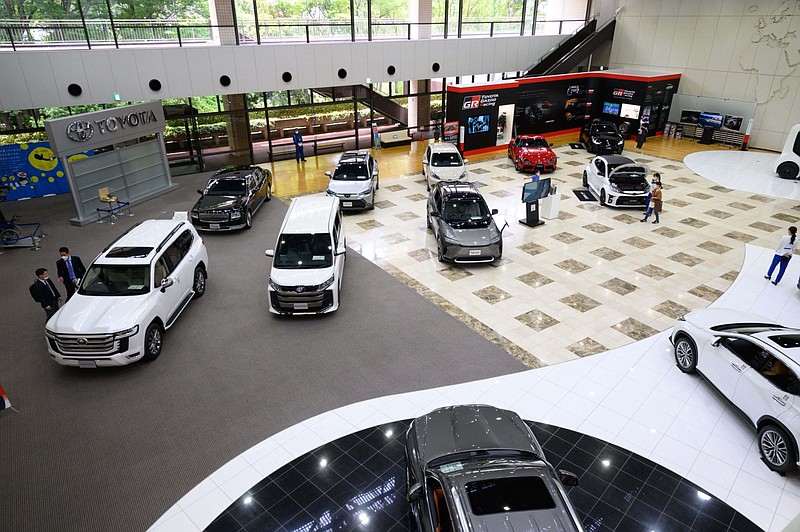Toyota's profit fell nearly 18% in the April-June quarter from the year before, as the semiconductor shortage slamming the auto industry dented production at Japan's top automaker.
Company shares fell 3% after Toyota kept its forecast for operating profit of nearly $18 billion for the fiscal year through March, short of analysts' average projection of $25 billion.
On Thursday, the company reported a quarterly profit of $5.5 billion, down from $6.8 billion the previous year. Quarterly sales were $64 billion, exceeding analysts' projections of $62 billion.
Toyota overall upgraded its full-year revenue outlook to $260 billion, from $250 billion.
It sold about 2 million vehicles during the quarter, down from 2.1 million vehicles in the same period last year as semiconductor shortages, higher raw material costs and covid-19-related curbs in China have caused turmoil at auto assembly lines across the globe.
Even so, the carmaker is sticking to its plan to assemble 9.7 million vehicles for the year.
But Toyota executives said there are still "many uncertainties ahead," such as downward pressure on the economy and potential interest rate hikes in other economies. "We are not confident enough to raise guidance."
"They didn't reach market estimates, it just wasn't enough and disappointing," said Seiji Sugiura, an analyst at Tokai Tokyo Research. "They saw no benefits from the weaker yen, they didn't make more cars and cost measures didn't seem to have much of an impact."
Toyota updated its foreign exchange assumption to 130 yen to the dollar, from 115 yen. While the update helped to boost reported income by $1.5 billion, the boost was outweighed by soaring material prices, which had a negative impact of $2.4 billion, according to Toyota.
Three months ago, Toyota said it would implement an "intentional pause" in output during the April-June quarter to be more "in line with recent realities." Lockdowns in Shanghai and a water supply shortage in Aichi prefecture also disrupted production over recent months.
"It's Toyota's style to have a conservative outlook, but unless there are surprises in the coming quarters, it's likely that we'll see upgraded views," said Tatsuo Yoshida, a Bloomberg Intelligence analyst.
The quarterly results show that Toyota is being proactive in making sure that its suppliers remain operationally and financially sound by absorbing many of the cost increases, he added.
Company officials apologized to customers who have been waiting for their cars after putting in orders. Some have waited so long the vehicle experienced a model change.
Various problems apart from the chips shortage have hurt production, such as flooding in South Africa and pandemic lockdowns in Shanghai, according to the manufacturer based in Toyota City, central Japan.
Electric vehicles, which need many chips, have been the worst hit by the global chips crunch. Rising material costs also hurt Toyota's bottom line.
"Securing parts such as semiconductors will continue to be unpredictable, but we will strive to achieve production that exceeds our forecast by working closely with our suppliers," Toyota said in presentation materials.
Information for this article was contributed by Masumi Suga of Bloomberg News and Yuri Kageyama of The Associated Press.
